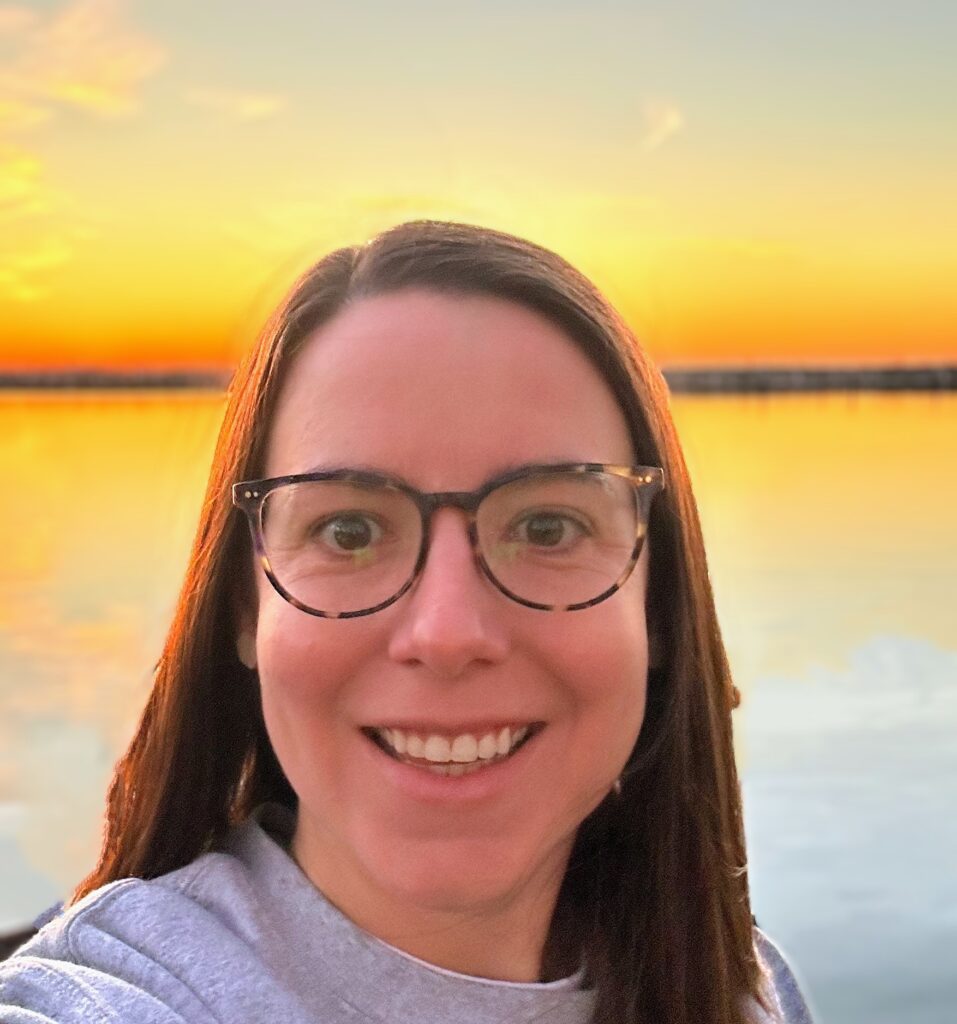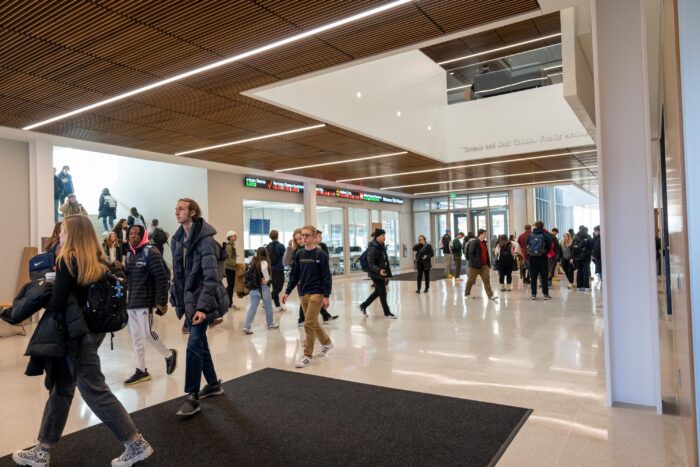Maggie Raskin has worked as a nurse in multiple roles and across multiple hospital systems, but she knew there was something more she wanted from her career when she decided to go back to school.
“I wanted more education and autonomy and that’s what drew me back to school to learn about anesthesia,” the instructor of nursing says. “It let me get the best of both worlds.”

Now a certified registered nurse anesthetist, Raskin will guide others through that intensive experience as the Nurse Anesthesia Educational Program’s newest part-time faculty member. While there, she will work on her doctoral dissertation.
Raskin brings almost a decade of nursing experience to the classroom and still works at Froedtert Hospital while teaching, ensuring students get the most up-to-date clinical knowledge.
What got you interested in teaching?
In our jobs, we teach frequently through preceptorships where we’re one-on-one with an anesthesia student in the operating room. They spend a lot of time in their clinicals before graduating, so a lot of us have students with us.
I didn’t know how that would translate from a clinical setting to the classroom and I didn’t know if it would be a good fit for me, but I tried teaching a part-time course and found that I really enjoyed it.
Describe the similarities and differences between teaching in a hospital and teaching in a classroom.
When you have a student one-on-one, you have different goals for that student each day. When you have 14 students with you, even if we all have the same goal, each student is going to work differently to get there.
It was interesting figuring out how to connect with people in the classroom setting and help each student get what they needed.
What are some qualities that all great nurse anesthetists share?
Lots of different nurses with various backgrounds do well in anesthesia, but the consistent quality is being highly motivated.
You have to have a critical care background because anesthesia training builds on that. People who are driven usually have the highest chances of success; we look for people who want to better themselves and take excellent care of their patients along the way.
You spent time abroad as a nurse in Kenya. What were your biggest takeaways from that experience?
It’s one of those things that really opens your eyes about the world. First of all, you realize how fortunate we are in America. We have a lot of health resources here that weren’t available in the area I visited.
One of the other things that stood out to me is how much health care providers were able to provide with the limited resources they had. It made you want to do the most you could for your own community.
I remember talking about the Kenya experience during the entrance interview to my anesthesiology program. It really taught me a lot and made me a better clinician.
You have two young kids; how does your perspective as a parent influence the way you teach, if at all?
Having kids has helped me gain a lot of perspective on teaching. Any adult learner has complex life circumstances whether they have kids or not. I went to graduate school when I was in my 20s and didn’t have kids yet, but everybody at that stage has life conditions to deal with. They are not coming at 18 or 20 years old; we’ve all had professional careers and I think the rapport you build with students is a little different because of that.
Meeting students where they’re at and understanding that other things in their life are going to be equal priorities to the classroom is important for anyone that’s going to be teaching them.
You also never know where someone comes from or what their background experience has been, so really seeing and accepting each student is crucial.
Does the anticipation for your first day teaching feel like the anticipation that came with the first day of classes as a student?
It feels strange because I’m preparing my oldest child to start kindergarten and I’m also taking courses to finish my doctorate, so I’m seeing this fall back to school period in so many ways at once.
The biggest thing I need to do over the next six to nine months as a student is narrow down what my DNP research project is going to be on. I’m thinking about focusing on something in the education or simulation space to coincide with the start of my career as an educator.
There are so many different emotions that come with starting all those things at one time.
What is some advice you have for students that you wish you’d known when you were in their position?
Just keep showing up. There will be highs and lows but it’s about consistently showing up and being prepared to learn. You’re going to move on a positive trajectory and build your knowledge if you do that.


